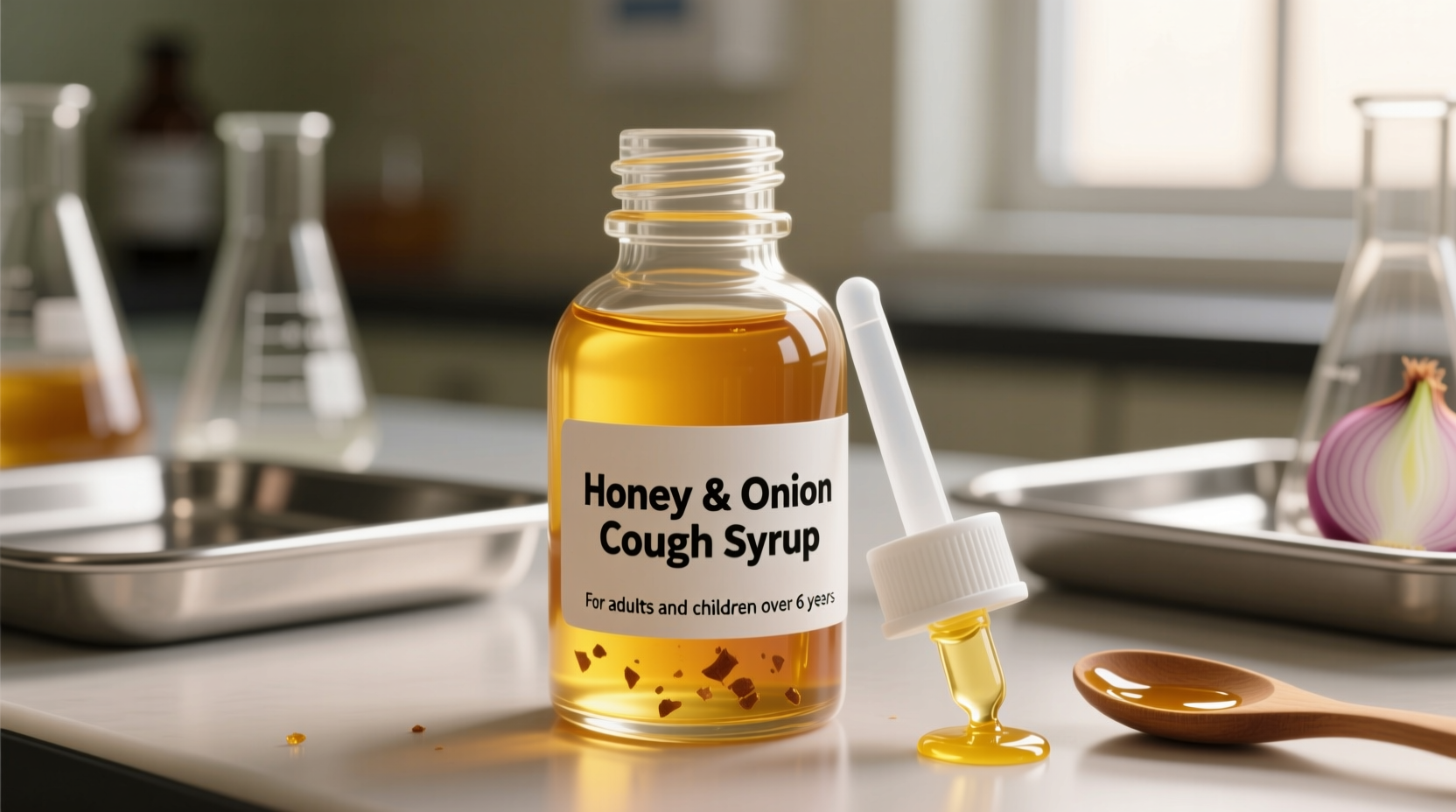When coughs strike, many turn to time-tested home remedies. Honey and onion cough syrup represents one such traditional approach that's gained renewed interest as people seek natural alternatives to over-the-counter medications. This comprehensive guide examines the science behind this remedy, provides a safe preparation method, and outlines important limitations you should know before trying it.
The Science Behind Honey for Cough Relief
Unlike many folk remedies, honey has substantial scientific backing for cough relief. According to research published in JAMA Pediatrics, honey outperforms placebo and some conventional cough medicines for reducing nighttime coughing and improving sleep in children over age 1. The World Health Organization (WHO) recognizes honey as a potential demulcent for cough relief in their guidelines on treating acute respiratory infections.
| Remedy Type | Effectiveness for Cough | Key Benefits | Important Limitations |
|---|---|---|---|
| Honey-based remedies | Proven effective for adults and children over 1 | Natural demulcent, soothes throat, may improve sleep | Not for children under 1, high sugar content |
| Commercial cough syrups | Mixed evidence, especially for children | Precise dosing, convenient | Potential side effects, not recommended for young children |
| Onion-based remedies | Limited scientific evidence | Traditional use, contains quercetin | Primarily anecdotal support, strong flavor |
This comparison shows why honey forms the more reliable component of this traditional remedy, while onion's role remains primarily cultural and traditional.
Understanding Onion's Role in Cough Remedies
While honey has scientific validation, onion's inclusion in cough remedies stems from historical usage rather than robust clinical evidence. Onions contain quercetin, a flavonoid with potential anti-inflammatory properties. Traditional medicine systems worldwide—from European folk medicine to Ayurveda—have incorporated onions for respiratory ailments for centuries.
It's important to recognize the context boundaries of this remedy: onion syrup works best for dry, persistent coughs rather than productive coughs where mucus clearance is needed. The remedy's effectiveness varies significantly based on preparation method and individual response.

Safe Preparation of Honey and Onion Cough Syrup
Creating an effective syrup requires proper technique to maximize potential benefits while minimizing risks:
- Peel and finely chop one medium yellow onion
- Place chopped onion in a clean glass jar
- Add 2-3 tablespoons of raw, unprocessed honey (preferably Manuka or local varieties)
- Cover jar and let sit at room temperature for 4-6 hours
- Strain the liquid into a clean container
- Store in refrigerator for up to one week
The honey draws out the onion's juices through osmosis, creating a syrup with combined properties. For adults, take 1-2 teaspoons as needed for cough relief, preferably before bedtime to reduce nighttime coughing.
Critical Safety Considerations
Before using this remedy, understand these essential safety points:
- Never give honey to children under 12 months due to risk of infant botulism, as confirmed by the Centers for Disease Control and Prevention
- People with diabetes should consult their healthcare provider due to the high sugar content
- Those with honey allergies should avoid this remedy entirely
- Onion may interact with blood-thinning medications
- This remedy provides symptomatic relief only and doesn't treat underlying infections
When to Seek Medical Attention
Natural remedies have their place, but certain symptoms require professional medical evaluation:
- Cough lasting more than 2-3 weeks
- High fever (over 101°F or 38.3°C)
- Blood in mucus
- Difficulty breathing or wheezing
- Chest pain
Remember that honey and onion syrup serves as temporary symptomatic relief, not a cure for underlying conditions like bronchitis, pneumonia, or whooping cough.
Managing Expectations: What This Remedy Can and Cannot Do
Based on current evidence, honey and onion cough syrup works best as a complementary approach rather than a standalone treatment. The National Center for Complementary and Integrative Health notes that while honey shows promise for cough relief, it should be viewed as part of a broader symptom management strategy that includes hydration, rest, and other supportive measures.
Many users report reduced cough frequency and improved sleep quality, particularly with nighttime coughs. However, individual responses vary considerably based on cough type, overall health, and other factors.











 浙公网安备
33010002000092号
浙公网安备
33010002000092号 浙B2-20120091-4
浙B2-20120091-4